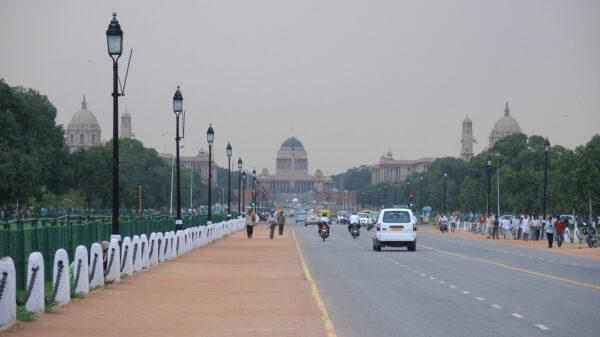Roar culture editor, Alex Blank, on how under-stimulating our senses can hone creativity.
To say that our modern society is overstimulated, with its stuffy city crowds and incessant notification noises, is an understatement. We’ve arrived at a point where dopamine cleanses have become a viable option to consider, since we are all in need of a break. But what if, instead of going cold turkey and restraining from the internet, alcohol, sugar, and other hedonistic pleasures we’d grown so accustomed to, we could try experimenting with sensory (im)balance? Since many of us are still in lockdown, I would argue that experimenting with making a different use of our senses could bring us closer to our creativity; especially now that plenty of us can afford to take a break from being alert all the time.
Haruki Murakami’s characters from The Wind-Up Bird Chronicle often play with their senses as one plays with fire. The protagonist of the story hides himself at the bottom of a well many times – and thereby subjects himself to temporary losses of sight – while another character stops speaking when he turns six years old. In the novel, the latter is described as ‘an almost perfect child. (…) He would decide for himself what he had to do and then he would do it, flawlessly, in his own way.’ That may lead us to believe that letting go of one of our senses – whether passive or active – is not always detrimental. On the contrary, it suggests that taking a sensory cleanse can be beneficial to us in many ways.
One of the most calming sensory luxuries is silence. Although underrated, silence in music is not an unfamiliar concept. From bands such as Soundgarden or Korn, up to the most well-known silent composition in the world, John Cage’s 4’33’’, musicians have been paying homage to silence, and the breath it gives to sound, for years. As either listeners or performers, we can learn a lot from it, as it inevitably begets emptiness. If we let ourselves be empty, we can set a new ground for ourselves, our minds, our creations. We can take a breath of fresh air and discover what the current life-pause might inform us about our own selves. It can also teach us something about the sense of sound itself. How do we listen to silence, after all? Can we dance to it? Can we hum along? Can we translate the auditory silence to other senses?
Among other types of artists, writers are also trying to experiment with sensory imbalance during the pandemic period. Many acclaimed writers, including Bernardine Evaristo and Max Porter, have taken part in so-called ‘darkness residencies.’ The project’s curator, Sam Winston, asked the authors ‘to spend hours in blackout before writing something inspired by heightened senses, identity, imagination, sensory reduction and rest.’ Although lockdown-inspired, the practice of writing sightlessly and/or thoughtlessly has been a recurrent idea, also vital in surrealist automatism. The latter writing technique may not require closing one’s eyes, but it is about letting go of an awareness of one’s senses, if not of one sense in particular. The goal of these practices, whether intentionally mindful or mindless, is to put ourselves out of sensory balance, and see how it affects us and the way we see (and write) the world.
Not all senses can be as easily and playfully lost, however, and many people have been negatively affected by the lack of human touch in lockdown. It is understandable, since touch is a significant yet undervalued sense; like health, we rarely notice it until it’s taken away from us. But we might choose to look at our sensory imbalances differently, and use them to a creative advantage – to discover how our individual cognitive faculties (or lack thereof) truly affect us, to enhance our creativity, or to at least give our overstimulated senses a bit of a break.














